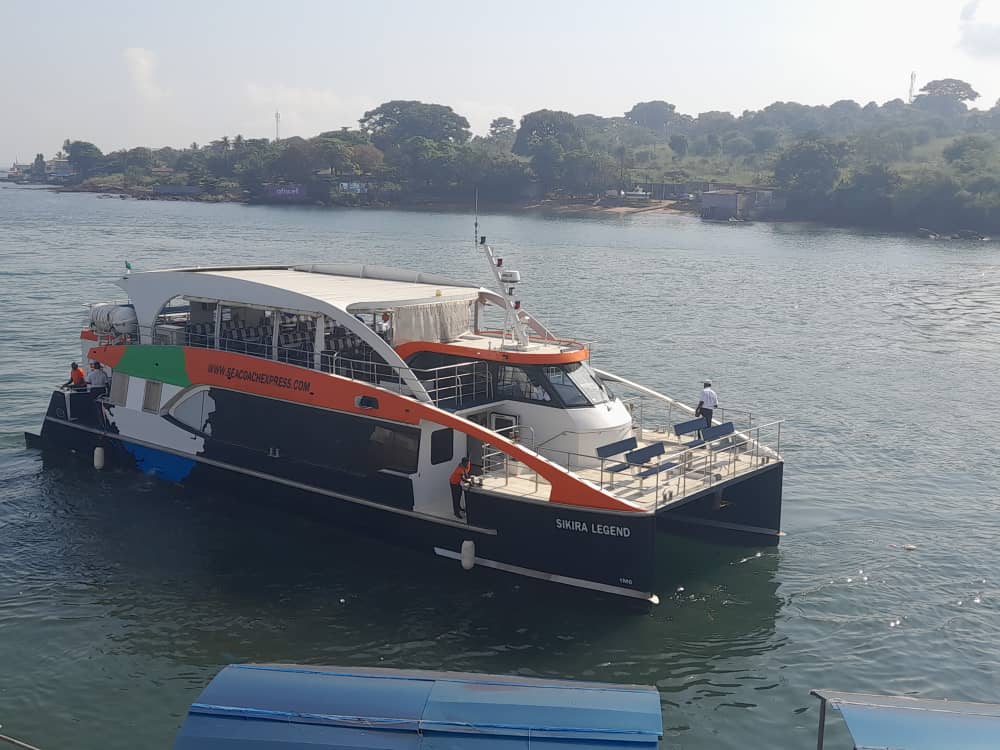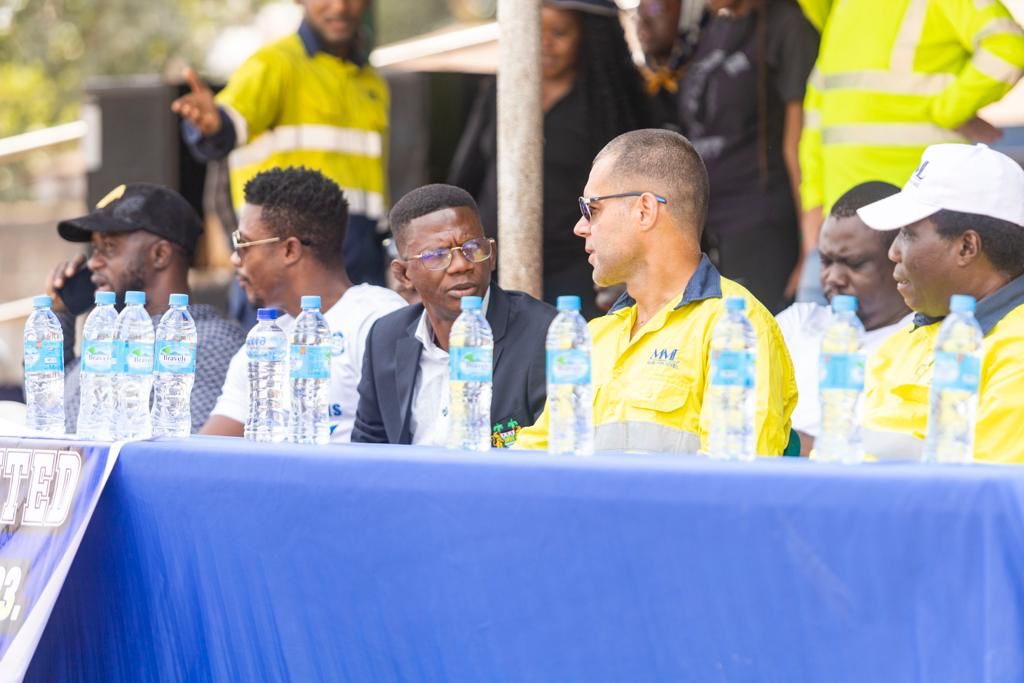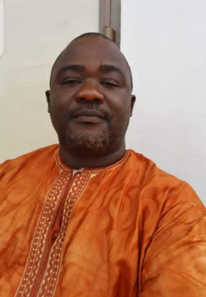BY ISHMAEL KINDAMA DUMBUYA
Wandering through a vehicle along major rivers in Sierra Leone in the north, North-West, South and eastern regions is perturbed by many anthropogenic or human-induced activities on the motherland. One would surely miss out the lustrous naturally endowed and overflowing whirls of fresh waters that were once admirable when one crosses these streams of fulfilling natural beauty and ecological endowments.
Decades ago, prior to the concentration of unsustainable artisanal gold mining activities along our river beds, the fresh whirls of those waters in the naturally flowing streams such as the River Pampana in the North, the Sewa and Jong Rivers in the East in addition to a host of other rivers and streams seem like a shadow of glory for the present and future generations. Today, all those natural sceneries and precious resources such as waters are being altered and depleted as a result of man’s insatiable quest for natural resources found underneath the riverbeds including gold and diamonds through unsustainable mining practices.

Unfortunately, the unsustainable mining practices in our riverbeds and riverbanks are not only being carried out by Sierra Leoneans alone but also by foreign nationals. The foreign nationals being the beneficiaries of these acts of destruction of our natural resources and nature prefer to violate our mining and environmental laws with impunity with the connivance of few Sierra Leoneans that return to their home country.
Some staffs at the Environment Protection Agency have witnessed multiple times during regular field operations and monitoring activities where some local communities would provide shelter and protection for foreigners of countries like Ghana, China, Ivory Coast and Liberia from being arrested and prosecuted by law enforcement officers. Staffs have also encountered serious confrontations from these community people who would rather instigate violence and pelt stones on government officers. Use abusive language against them for simply ensuring sustainable exploitation of natural resources and preventing degradation of the environment and its attendant consequences.
What is worth noting is that the protection of Sierra Leone’s natural resources and the environment in general is guaranteed and sanctioned by law which every Sierra Leonean or residents of the country must comply with. The Environment Protection Agency of Sierra Leone (EPA is the main Government Agency responsible for the protection and management of the environment. The Agency also plays a key role in conducting investigations on environmental issues and advises the government of Sierra Leone as stipulated in section 12(k) of the EPA Act of 2008. The 2008 Act also makes it an offence for any person to prevent an authorized officer from performing his lawful functions.
River pollution, especially with the use of dredges, other polluting mining equipment and chemical substances such as mercury and hydrocarbons are major issues affecting local communities across Sierra Leone. Most of the residents in areas such as the Pampana River, Moa River, Great and Little Scarcies among others complained about the wanton destruction of their sources of drinking waters in the streams as a result of unsustainable artisanal mining activities using dredges and other water polluting equipment thereby posing serious and eminent threats to lives both on land and below water and depriving communities of much needed water for drinking, cooking and other domestic uses.
The Government has made great efforts to address this menace. In the Presidential Brief of 7th June 2021, His Excellency the President and Chairman of the National Security Council issued a policy directive to the security sector to stem the ongoing pollution of the major water bodies as a result of mining activities along and in river beds across the country. After the issuance of the Presidential Policy Directive, a committee consisting EPASL was setup to carry out the President’s directive to stem the pollution of waters across the country.
The committee was charged, among other things, with the responsibility of conducting joint monitoring exercises and raids along polluted rivers and destroys all dredges and other water polluting mining equipment found along and on river beds. Since its establishment in 2021, the Committee through the leadership of the EPASL has destroyed more than two hundred (200) dredges found within and around our riverbeds and our riverbanks across the country.
As patriotic citizens who care about the present and future of their country, all Sierra Leoneans, particularly those living in riverine communities, must endeavor to protect the riverbanks and riverbeds to secure a sustainable future for all which is the key objective of the Environmental Protection Agency that is working tirelessly to achieve.

According to a report published in April 2020 by the Environmental Protection Agency of Sierra Leone on the National Action Plan for reducing mercury use in the artisanal and small-scale gold mining (ASGM) sector in Sierra Leone, it is emphasized that “in rivers where dredges are used, such as in the small-scale gold mining operations in the Tayei and the Pampana Rivers, the flows of river systems are disrupted by the excavation of soils and the dumping of mine tailings”.
The report further pinpointed that artisanal gold mining also ‘affects drinking water that nearby communities and farmers’ cattle may rely on, which may further exacerbate the risk of cholera, an important health risk in many of Sierra Leone’s rural communities.
The threats to our waterbodies and riverbanks as a result of artisanal mining of gold are not only unique to Sierra Leone. Elsewhere, a 2021 Dartmouth study published by the National Academy of Sciences finds out that “artisanal-scale gold mining is altering water clarity and dynamics in the Madre de Dios River watershed in Peru, a tropical biodiversity hotspot. Higher levels of suspended sediment were found in rivers near the mining sites, with increasing impacts as mining has become more widespread in the past two decades.
The elevated sediment levels contain mercury and other contaminants, which can pose health risks to humans and have a detrimental impact on fish populations and other aquatic life. In Ghana for instance, according to a 2021 report also published by the Earth Observatory, about 35% of Ghana’s land is extracted/disturbed through ‘’small-scale mining, many of which operate informally or without a valid license’’. Comparatively, this act of operating illegally or sneaking to villages with the guise of providing low paid and unsustainable jobs for locals could also be associated with what is happening here in Sierra Leone.
For the past few months since the operation was launched by the EPASL and the other key government partners, positive milestones have been achieved. For instance, the operation has enhanced the massive reduction of the rampant pollution of our river beds during the search for gold and it has also succeeded in reducing a substantial number of illicit mining activities that were being carried out on our rivers that were once the sights of naturally flowing fresh water with rich marine biodiversity.
Notably, and as a key mandate of the presidential directive and an outcome of the committee since its establishment in 2021, the operations have contributed to the destruction of more than 200 dredges that were found on sight within and around the riverbeds. This success story was achieved as a result of the strong and effective collaboration between the Security Sector and the Environmental Protection leading to greater protection of the country’s natural resources including the protection of key protected areas around the country. The monitoring operation had also increased the local partnership between the Agency and the traditional leaders and heads of various communities along and within the major rivers across the country as these traditional leaders play a vital and key role towards the protection of Sierra Leone’s natural resources.
Notwithstanding the huge financial resources, the Agency has expended into the monitoring operations for the prevention of pollution of the country’s biodiversity rich rivers, the EPASL had also succeeded in generating income for the state out of the fines received from culprits and those caught on sight. Aside this financial benefit to the state, the monitoring operations had also reduced the large number of foreign miners that were undertaking illegal and unsustainable mining activities through a number of arrests, investigations and prosecution of foreign nationals across the Sierra Leone through the assistance of the Agency’s environmental compliance and law enforcement department.
Conclusively, evidences have suggested that efforts to stem out river pollution being largely championed by the EPASL should be a continuous and sustained process which the head of the Agency in the person of Dr. Bondi Gevao (Executive Chairman), has vowed and pledged to support at all times as long as he is the head of the environmental protection agency. In his determination to end these mining practices that have adverse effects on the people, the planet and national prosperity, Dr. Gevao had recently said ‘if the illegal miners don’t stop, EPASL is not going to stop’.
However, as Sierra Leoneans, we must at all times embrace all efforts especially those from the Environmental Protection Agency that are geared towards curbing the rampant pollution and destruction of our precious rivers and their rich resources across the country. In addition to all of these efforts, the Environmental Protection Agency is looking towards cleaner and fresh flowing whirls of streams from these once naturally flowing rivers so that the present and future generations of our motherland would continue to enjoy a taste of beauty and natural bliss.

















